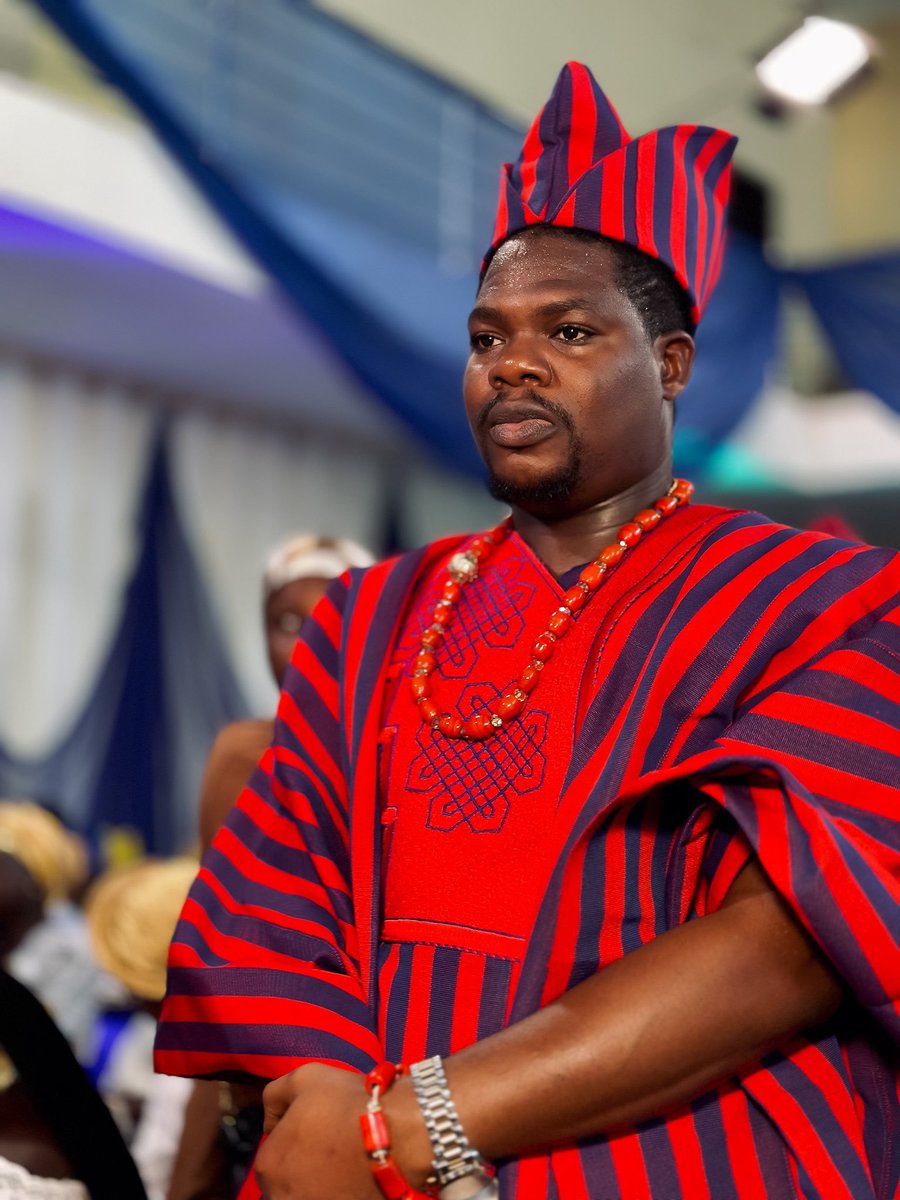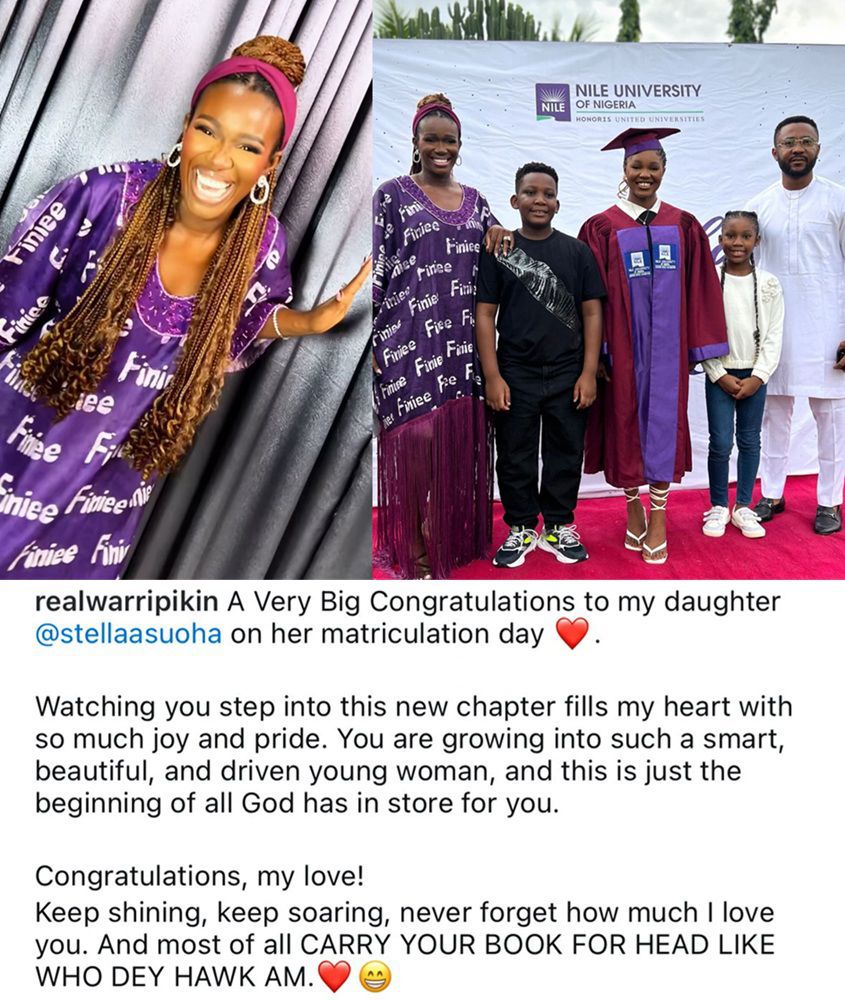
Mr Macaroni Reacts as Delta State School of Nursing Queries Student Over Viral Welcome Song for First Lady Oluremi Tinubu

Popular Nigerian comedian and activist, Mr Macaroni, has reacted strongly to the controversy surrounding a student of Delta State College of Nursing Sciences who was queried for sharing a video of her colleagues singing a controversial welcome song for First Lady Oluremi Tinubu.
The viral video, which surfaced online, showed a group of nursing students welcoming the First Lady with a song that sparked mixed reactions from the public.
Following the video’s circulation, the school authorities issued a query to the student responsible for sharing the clip, threatening her with disciplinary action.
This decision by the institution has been met with widespread criticism, with many questioning why a student should be punished for simply recording and sharing a moment from a public event.
Mr Macaroni, known for using his platform to speak against oppression and injustice, took to social media to condemn the school’s action.
He expressed outrage over the fact that a student was facing disciplinary threats over a song, calling the situation absurd and unnecessary.
In his reaction, he pointed out that the students in the video were simply expressing themselves and had done nothing wrong by acknowledging their mothers’ hard work.
He questioned why the school would attempt to punish students for singing a song that resonated with their reality.
“Delta State College of Nursing Sciences is threatening a student with disciplinary action because of a song??? The students say dem sabi their mama!! Students wey their mama dey work hard to give them better life. Una wan come expel them because dem refuse to deny their mama? Na by force???” Mr Macaroni wrote.
His reaction quickly went viral, sparking even more conversations around the issue and drawing attention to what many see as an unjust attempt to silence students.
Many Nigerians have since weighed in on the controversy, expressing their disappointment with the college’s decision and calling for the query letter to be withdrawn.
Critics argue that the student did nothing wrong by sharing the video, as the event was a public gathering attended by a high-profile figure.
They insist that in an era where social media is a major tool for communication, it is unreasonable for institutions to penalize individuals for documenting and sharing public events.
The controversy surrounding the video itself has also generated debates, with some people questioning why the song should be considered controversial in the first place.
The lyrics of the song, which referenced students knowing their mothers and recognizing their sacrifices, have been interpreted in different ways, with some seeing it as an innocent expression of gratitude while others view it as politically sensitive.
Regardless of the differing opinions, many believe that the school’s response was excessive and unnecessary.
Legal experts and human rights advocates have also weighed in, stating that the student’s right to freedom of expression should be protected.
They argue that unless there is a clear rule within the school’s regulations prohibiting students from recording such events, the disciplinary action against the student lacks any legal basis.
The situation has now placed increased pressure on the college to reconsider its stance, as calls for justice continue to grow.
Some observers believe that the move to query the student is an attempt to suppress free speech and prevent young people from openly engaging with societal issues.
Many have drawn parallels between this incident and previous cases where Nigerian students have faced disciplinary actions for expressing themselves, either through protests, social media posts, or public statements.
The case has also reignited discussions about the role of educational institutions in shaping the civic engagement of students.
Some argue that schools should encourage students to be aware of national conversations and participate in discussions rather than silence them.
Others, however, maintain that students should be mindful of institutional policies and ensure that their actions align with the rules governing their schools.
Amid the growing public backlash, several student advocacy groups and human rights organizations have called on the Delta State College of Nursing Sciences to immediately withdraw the query letter and issue a public apology to the affected student.
They insist that punishing a student for sharing a harmless video sends the wrong message and could create a culture of fear and repression within the institution.
The Nigerian social media space has continued to buzz with reactions, with many users praising Mr Macaroni for speaking out and using his platform to amplify the issue.
The comedian, who has been vocal about various social justice causes in Nigeria, has often used satire and activism to challenge government policies and institutional injustices.
His stance on the Delta State College of Nursing Sciences issue has once again positioned him as a leading voice in the fight for students’ rights and freedom of expression.
Meanwhile, supporters of the college’s decision argue that there may have been internal rules regarding media coverage of school events, which the student may have violated.
They insist that institutions have the right to enforce disciplinary measures if students act against established guidelines.
However, this argument has been countered by those who believe that even if such a rule exists, the punishment is too harsh and unnecessary.
As the debate continues, all eyes are now on the Delta State College of Nursing Sciences to see how they will respond to the growing criticism.
Will they bow to public pressure and withdraw the query letter, or will they stand by their decision and risk further backlash?
For now, the student at the center of the controversy remains uncertain about her fate, as discussions about the incident continue to gain momentum.
What is clear, however, is that this case has once again highlighted the ongoing struggle between institutional authority and individual rights in Nigeria.
As Mr Macaroni and other activists continue to speak out, the hope is that educational institutions will recognize the importance of allowing students to express themselves without fear of retribution.
The case of the Delta State College of Nursing Sciences student serves as a reminder of the need for a more inclusive and democratic approach to handling issues of student engagement and free speech in Nigerian schools.
With the increasing role of social media in shaping narratives and exposing injustices, it remains to be seen how institutions will adapt to the changing landscape of communication and public discourse.
As Nigerians await further developments, one thing is certain—this issue is far from over, and the voices calling for justice are only growing louder.


